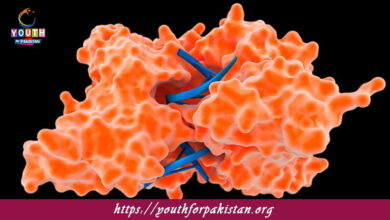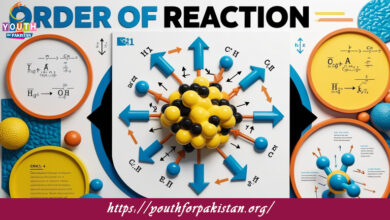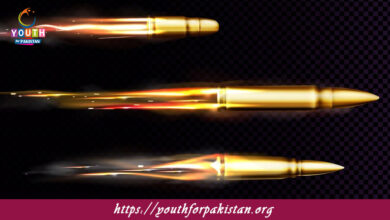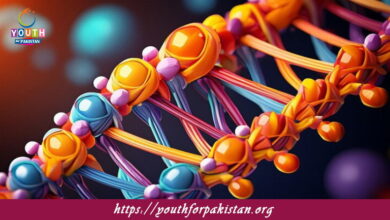Benzene Properties MDCAT MCQs with Answers
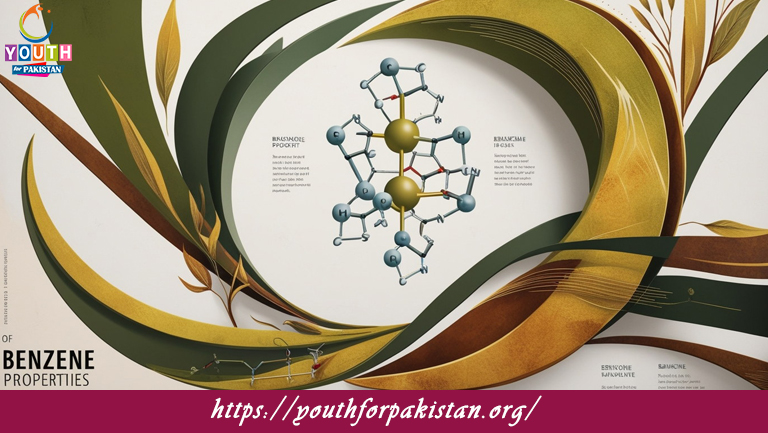
Welcome to the Benzene Properties MDCAT MCQs with Answers. In this post, we have shared Benzene Properties Multiple Choice Questions and Answers for PMC MDCAT 2024. Each question in MDCAT Chemistry offers a chance to enhance your knowledge regarding Benzene Properties MCQs in this MDCAT Online Test.
Benzene is primarily classified as which type of hydrocarbon?
a) Alkane
b) Alkene
c) Aromatic
d) Alkyne
Benzene has a boiling point of approximately:
a) 80°C
b) 100°C
c) 120°C
d) 160°C
The density of benzene is:
a) 0.80 g/cm³
b) 0.90 g/cm³
c) 1.00 g/cm³
d) 1.10 g/cm³
Benzene is soluble in:
a) Water
b) Ethanol
c) Organic solvents
d) Salt solutions
Which property of benzene is characteristic of its aromatic nature?
a) High melting point
b) High reactivity
c) Delocalized π-electrons
d) Low density
Benzene reacts with bromine in the presence of a catalyst to form:
a) Benzene bromide
b) Benzene chloride
c) Benzene oxide
d) Benzene peroxide
Benzene’s melting point is:
a) 5.5°C
b) 10.0°C
c) 20.0°C
d) 30.0°C
The solubility of benzene in water is:
a) High
b) Moderate
c) Low
d) None
Benzene is used as a solvent due to its:
a) High boiling point
b) Non-polar nature
c) High density
d) High melting point
Benzene has a characteristic odor that is:
a) Sweet
b) Musty
c) Pungent
d) Pleasant
Benzene’s characteristic chemical reactivity includes:
a) Addition reactions
b) Substitution reactions
c) Oxidation reactions
d) Hydrolysis reactions
Benzene is:
a) A saturated hydrocarbon
b) An unsaturated hydrocarbon
c) A polymer
d) An inorganic compound
Benzene’s reactivity towards electrophiles is explained by its:
a) High electron density
b) Low electron density
c) Non-planarity
d) Polar nature
Benzene is primarily used as a:
a) Fuel
b) Solvent
c) Food additive
d) Fertilizer
Which of the following is a physical property of benzene?
a) It is highly reactive with water
b) It is a colorless liquid
c) It has a high boiling point
d) It is highly soluble in water
The presence of which functional group in benzene affects its reactivity?
a) Hydroxyl group
b) Carbonyl group
c) Amino group
d) All of the above
Benzene undergoes which type of reaction with nitric acid?
a) Addition
b) Substitution
c) Hydrolysis
d) Oxidation
The primary hazard of benzene is:
a) It is highly flammable
b) It is highly corrosive
c) It is a strong oxidizer
d) It is a strong acid
The benzene ring is often used in:
a) Synthetic dyes
b) Pharmaceuticals
c) Plastics
d) All of the above
Benzene’s interaction with nitric acid produces:
a) Nitrobenzene
b) Benzyl alcohol
c) Benzene diol
d) Benzene chloride
Benzene’s high stability is due to its:
a) Cyclic structure
b) Non-aromatic nature
c) Electrophilic substitution
d) Lack of resonance
Which property of benzene makes it useful as an industrial solvent?
a) Its high reactivity
b) Its low boiling point
c) Its non-polarity
d) Its high density
Benzene reacts with chlorine in the presence of a catalyst to form:
a) Benzyl chloride
b) Chlorobenzene
c) Benzene chloride
d) Dichlorobenzene
In terms of chemical reactivity, benzene is:
a) Highly reactive due to its double bonds
b) Less reactive due to its aromatic stability
c) Moderately reactive
d) Non-reactive
The molecular formula of benzene is:
a) C6H12
b) C6H6
c) C6H10
d) C6H14
Benzene’s boiling point is affected by:
a) The size of its molecules
b) The number of hydrogen atoms
c) The presence of functional groups
d) The presence of resonance stabilization
Benzene reacts with sulfuric acid to form:
a) Sulfonic acid
b) Sulfide
c) Sulfate
d) Sulfoxide
The color of benzene is:
a) Blue
b) Green
c) Colorless
d) Red
Benzene is a liquid at room temperature due to its:
a) High molecular weight
b) High boiling point
c) Low melting point
d) High density
Benzene’s aromatic ring results in:
a) Equal bond lengths
b) Alternating double bonds
c) High acidity
d) Non-planar geometry
Benzene’s interaction with strong oxidizers results in:
a) Complete oxidation to carbon dioxide
b) Formation of benzene oxide
c) No reaction
d) Formation of benzene chlorides
The reactivity of benzene can be increased by:
a) Increasing temperature
b) Adding catalysts
c) Changing its molecular weight
d) Reducing its density
Benzene’s structure is:
a) Linear
b) Planar
c) Tetrahedral
d) Trigonal pyramidal
The combustion of benzene produces:
a) Benzene oxides
b) Carbon dioxide and water
c) Benzene acids
d) Benzene alcohols
Benzene is not soluble in:
a) Alcohol
b) Water
c) Ether
d) Acetone
The characteristic smell of benzene is described as:
a) Fruity
b) Sweet
c) Spicy
d) Musty
Benzene undergoes which reaction type with sulfuric acid?
a) Substitution
b) Addition
c) Decomposition
d) Reduction
The bond length in benzene is:
a) Longer than in single bonds
b) Shorter than in double bonds
c) Intermediate between single and double bonds
d) Equal to double bonds
The reaction of benzene with alkyl halides requires:
a) A reducing agent
b) An acid catalyst
c) A base catalyst
d) A heat source
Benzene’s chemical stability is attributed to:
a) Its high reactivity
b) Its aromatic ring
c) Its non-polarity
d) Its high density
If you are interested to enhance your knowledge regarding Physics, Chemistry, Computer, and Biology please click on the link of each category, you will be redirected to dedicated website for each category.


